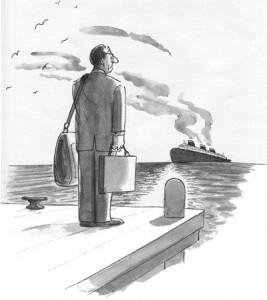Lessons from Pirates? Not Quite.
 Wired (and WELL) co-founder (and all around writer/blogger/lecturer/savant) Kevin Kelly has written an interesting blog “How to Thrive Among Pirates” wherein he extrapolates lessons Western film producers could learn from the piracy-ridden filmmaking cultures of China, Nigeria, and India.
Wired (and WELL) co-founder (and all around writer/blogger/lecturer/savant) Kevin Kelly has written an interesting blog “How to Thrive Among Pirates” wherein he extrapolates lessons Western film producers could learn from the piracy-ridden filmmaking cultures of China, Nigeria, and India.
The short summary, for those unfamiliar with China/Nollywood/Bollywood filmmaking, is that there is a thriving low (or no) budget domestic filmmaking culture in these countries which one would presume would be impossible, given the widespread piracy in each.
It’s a very comprehensive, well written read – but I think his conclusions miss the mark, and often gloss over (or conveniently ignore) some of the realities of the situations and solutions he raises.
What do these gray zones have to teach us? I think the emerging pattern is clear. If you are a producer of films in the future you will:
1) Price your copies near the cost of pirated copies. Maybe 99 cents, like iTunes. Even decent pirated copies are not free; there is some cost to maintain integrity, authenticity, or accessibility to the work.
The problem with this approach is that Kevin is thinking in terms of the lessons he’s learned in three countries where physical media is the primary distribution channel of pirated material. In the west, the “cost of a pirated copy” for many movies is zero (or, at best, the pro-rated cost of a low-end computer and a couple of hours of internet time to snag a torrent. This, in most cases, doesn’t even get you a fuzzy multiple-generation bootleg, or shaky handicam movie, but a pristine, DVD-quality film – better than what you’d get at most theatres in Nigeria or India. Read more




